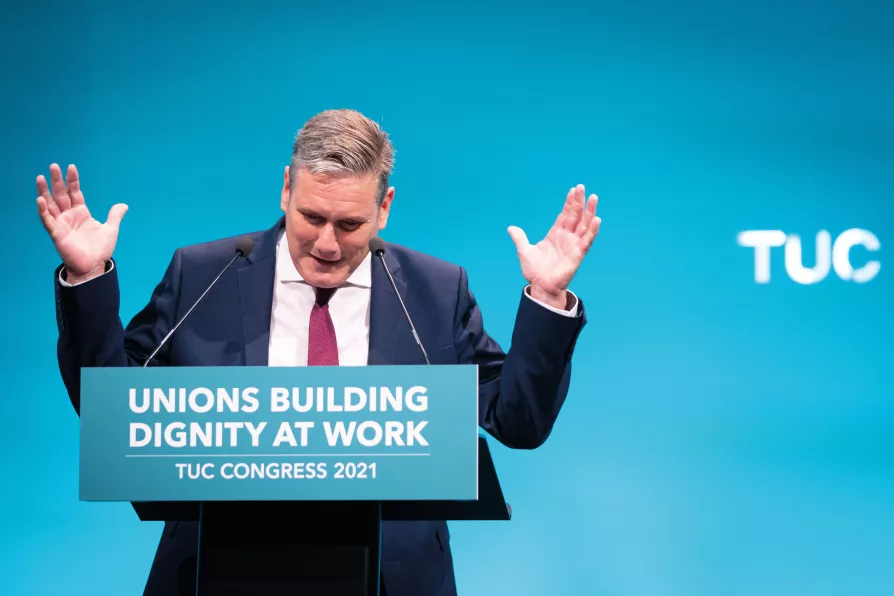The US-Israeli strikes against Iran are part of a decades-long war against the Islamic Republic which has refused to bow to US demands that it surrender its sovereignty, argues VIJAY PRASHAD

 Labour leader Keir Starmer speaking at the TUC congress in London, September 14, 2021
Labour leader Keir Starmer speaking at the TUC congress in London, September 14, 2021
ON CURRENT trends and despite recent turmoil, pollsters are telling us that 2024 seems on course to produce a Labour-led government (at least).
The Tory Party seems likely to be punished for its eugenics and corruption during Covid, the collapse of public services and the economic incompetence of the Liz Truss period.
Issues over how best to continue union-building work in a climate that unions have not had to navigate for 14 years will now come to the fore for many organisations.
We are in an urgent debate over how best unions can avoid the expectation of blank cheque loyalty on every issue that will arise from the party, especially when the shine wears off — and how in the meantime unions resist being policed by Labour. Simply put, will unions choose the role of critical ally or uncritical cheerleader? And what might that look like in 2024 compared to 1997?
A bit of 1997-era history is worthwhile. In 1997 we could have done anything. New Labour was elected with a majority of 179 on a wave of anti-Tory sentiment after 18 years in opposition.
For much of that time, trade unions had adopted the “dented shield” approach, retreating from conflict with employers, and stepping back from industrial campaigning as we waited for a Labour government to arrive and get us off life support.

Labour’s watered-down legislation won’t protect us from unfair dismissal or ban some zero-hours contracts until 2027 — leaving millions of young people vulnerable to the populist right’s appeal, warns TUC young workers chair FRASER MCGUIRE

The Bill addresses some exploitation but leaves trade unions heavily regulated, most workers without collective bargaining coverage, and fails to tackle the balance of power that enables constant mutation of bad practice, write KEITH EWING and LORD JOHN HENDY KC

It is only trade union power at work that will materially improve the lot of working people as a class but without sector-wide collective bargaining and a right to take sympathetic strike action, we are hamstrung in the fight to tilt back the balance of power, argues ADRIAN WEIR

In an address to the Communist Party’s executive at the weekend international secretary KEVAN NELSON explained why the communists’ watchwords must be Jobs not Bombs and Welfare not Warfare










